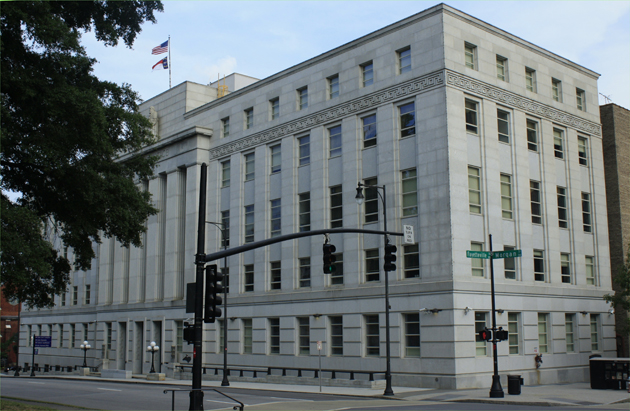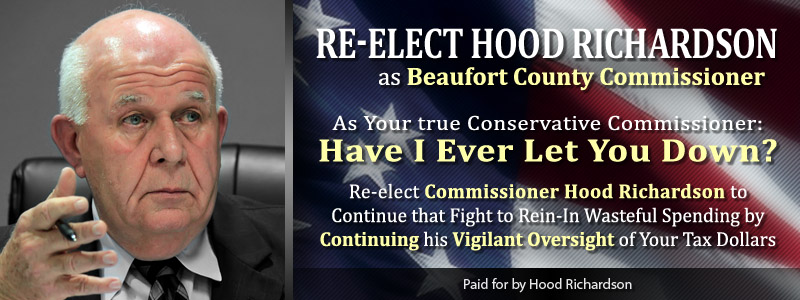Publisher's Note: This article originally appeared in the Beaufort Observer.
The North Carolina Supreme Court handed down a decision Friday (3-8-13) that may well become a landmark precedent-setting case that will protect citizens, individual and corporate, from abusive municipalities and counties that try to use their taxation powers to control behavior rather than simply raise revenue.
The N. C. Constitution provides: "The power of taxation shall be exercised in a just and equitable manner, for public purposes only, and shall never be surrendered, suspended, or contracted away." N.C. Const. art. V, § 2(1). The specific clause in Article V was the issue addressed, i.e., what "a just and equitable manner..." means as a matter of law.
The issue in the case was an increase in the City of Lumberton's privilege license fee for internet promotional sweepstakes businesses. The City had increased the fee from $12.50 per year to $5000 per business location plus $2,500 per computer terminal in each business location--making the minimum tax owed by each establishment being $7,500, but much more in some establishments with more machines. In comparison, of the forty-four categories of privilege license taxes imposed by the City, the second highest was $500 for ―Circuses, Menageries, Wild West, [and] Dog and Pony Shows‖ that visited town the same week as the county fair. The new terms of the privilege tax dramatically increased the amount each company owed, ranging from $75,000 to $137,500.2 The new tax represented an increase of approximately 600,000%-1,100,000% in the amount billed to the companies.
 North Carolina Supreme Court in August, 2012: Above. photo by Stan Deatherage
North Carolina Supreme Court in August, 2012: Above. photo by Stan Deatherage
The Court ruled the taxes unconstitutional as being unjust and inequitable. The Court said:
Here, the City's 59,900% minimum tax increase is wholly detached from the moorings of anything reasonably resembling a just and equitable tax. If the Just and Equitable Tax Clause has any substantive force, as we hold it does, it surely renders the present tax invalid. In light of the unusual facts we confront in the present case, and cognizant of the nearly universal deference by courts to legislative tax classifications, we do not attempt to define the full parameters of the Just and Equitable Tax Clause's limitations on the legislative taxing power. Rather, we conclude the companies here have shown that the present tax--representing a 59,900% minimum tax increase upon conduct viewed as putatively lawful at the time of the assessment--transgressed the boundaries of permissible taxation and constituted an abuse of the City's tax-levying discretion. We therefore hold the City of Lumberton's privilege tax at issue constitutes an unconstitutional tax as a matter of law and the trial court erred in granting summary judgment for the City. Accordingly, we reverse the decision of the Court of Appeals.
Click here: IMT, INC. V. CITY OF LUMBERTON to download the decision.
Commentary
This decision is a major advancement of individual liberty. Historically, there has always been a tension between the legislative power to tax and the power to regulate behavior. That tension has developed a long tradition of balancing those two powers. The courts have accepted both powers as being legitimate legislative authority but conservative courts have traditionally struck that balance more on the side of restricting the power to tax wherein it advances government infringements on the liberty of individuals or business to "be left alone."
Where liberal justices opt to strike the balance more in favor of government control of behavior as opposed to protecting individual liberties we see such things a the imposition of exorbitant taxes such as in the case of tobacco products. But the significant difference between a legal tax, even if exorbitant, and an unconstitutional tax, is where the effect of the tax is to drive an otherwise legal business out of business.
That is the intent of most jurisdictions when it comes to internet sweepstakes businesses. They use the power to tax to try to eliminate them. Here the conservative North Carolina Supreme Court stands up for the idea that government cannot use the power to tax as the power to destroy.
A corollary of this principle, we predict, will also be applied to local government zoning regulations. Several liberal local governments, including the City of Washington, have tried to use their zoning power to drive internet cafes out of business. We predict that eventually the court will apply the same reasoning as in Lumberton to strike down such zoning restrictions.
And we see this as a good thing. A very good thing, indeed. The elitist idea that some people bring to the issue of internet sweepstakes is that they believe they should decide what a person spend their own money for rather than the citizen who often worked hard for that money. It is exactly the same issue that is involved in the current debate of "pay day loans."
Pay day loans are loans made by businesses that are willing to take extraordinary risk in lending to people who cannot get loans from banks. Because of the risks and the relative small amount of the loans with correspondingly higher processing costs the businesses charge significantly higher interest rates/fees. People who typically use these types of loans are people who don't have many resources to begin with. They are often desperate--needing money quickly to, for example, pay the light bill to keep the utility for cutting off their electricity, or even to buy food for their family. The elitists come in with their sanctimonies and try to prohibit such loans ostensibly to "protect the victims." Never mind that the victims don't want the elites' protection.
It's the same misguided liberalism with the pay day loans and the internet sweepstakes. But the real issue in both cases is individual liberty. And to its credit, the North Carolina Supreme Court came down on the side of individual liberty.
We trust Washington and the other liberal elite cities will get a clue, finally.
























